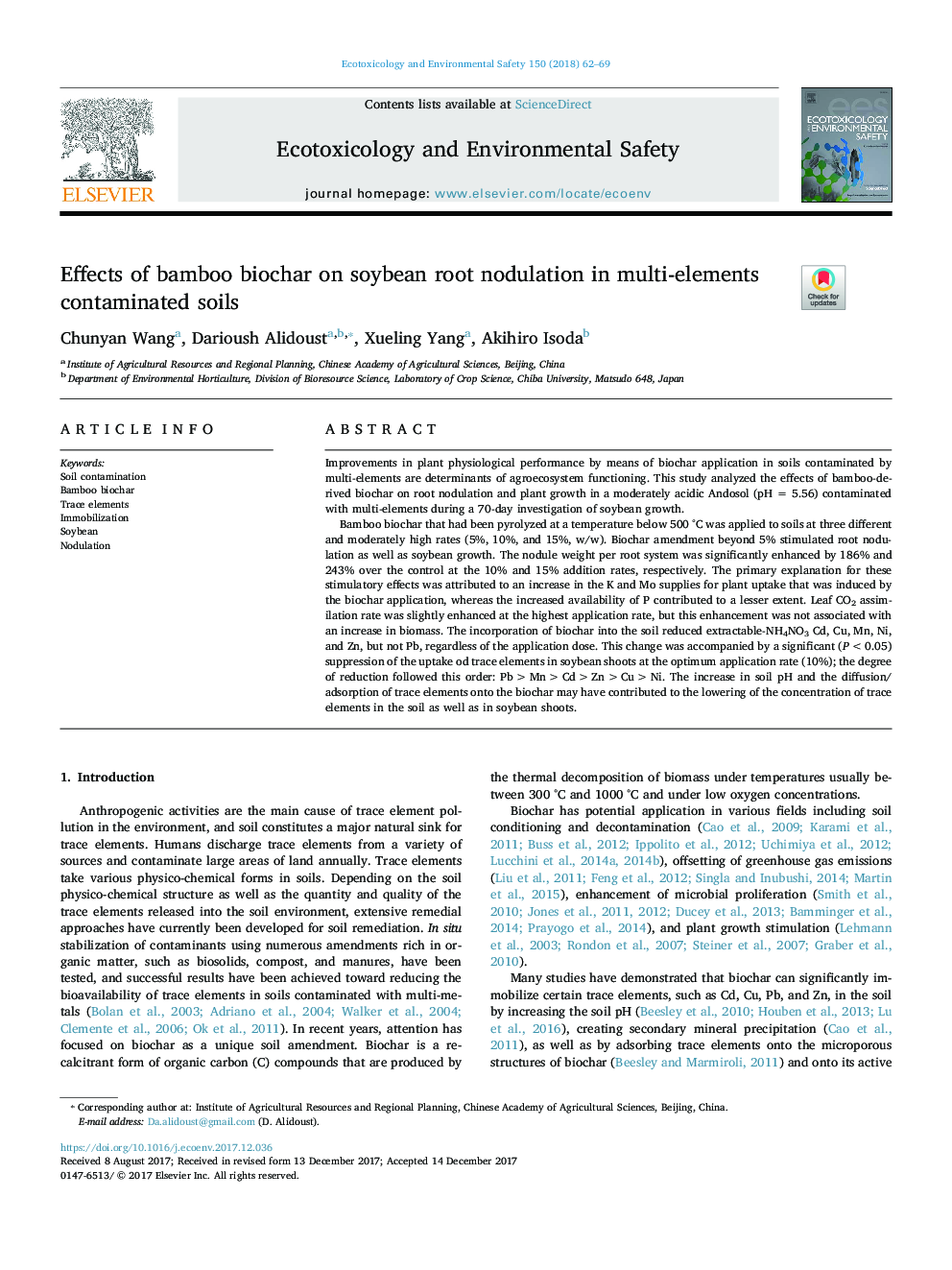| Article ID | Journal | Published Year | Pages | File Type |
|---|---|---|---|---|
| 8854442 | Ecotoxicology and Environmental Safety | 2018 | 8 Pages |
Abstract
Bamboo biochar that had been pyrolyzed at a temperature below 500 °C was applied to soils at three different and moderately high rates (5%, 10%, and 15%, w/w). Biochar amendment beyond 5% stimulated root nodulation as well as soybean growth. The nodule weight per root system was significantly enhanced by 186% and 243% over the control at the 10% and 15% addition rates, respectively. The primary explanation for these stimulatory effects was attributed to an increase in the K and Mo supplies for plant uptake that was induced by the biochar application, whereas the increased availability of P contributed to a lesser extent. Leaf CO2 assimilation rate was slightly enhanced at the highest application rate, but this enhancement was not associated with an increase in biomass. The incorporation of biochar into the soil reduced extractable-NH4NO3 Cd, Cu, Mn, Ni, and Zn, but not Pb, regardless of the application dose. This change was accompanied by a significant (P < 0.05) suppression of the uptake od trace elements in soybean shoots at the optimum application rate (10%); the degree of reduction followed this order: Pb>Mn>Cd>Zn>Cu>Ni. The increase in soil pH and the diffusion/adsorption of trace elements onto the biochar may have contributed to the lowering of the concentration of trace elements in the soil as well as in soybean shoots.
Related Topics
Life Sciences
Environmental Science
Environmental Chemistry
Authors
Chunyan Wang, Darioush Alidoust, Xueling Yang, Akihiro Isoda,
